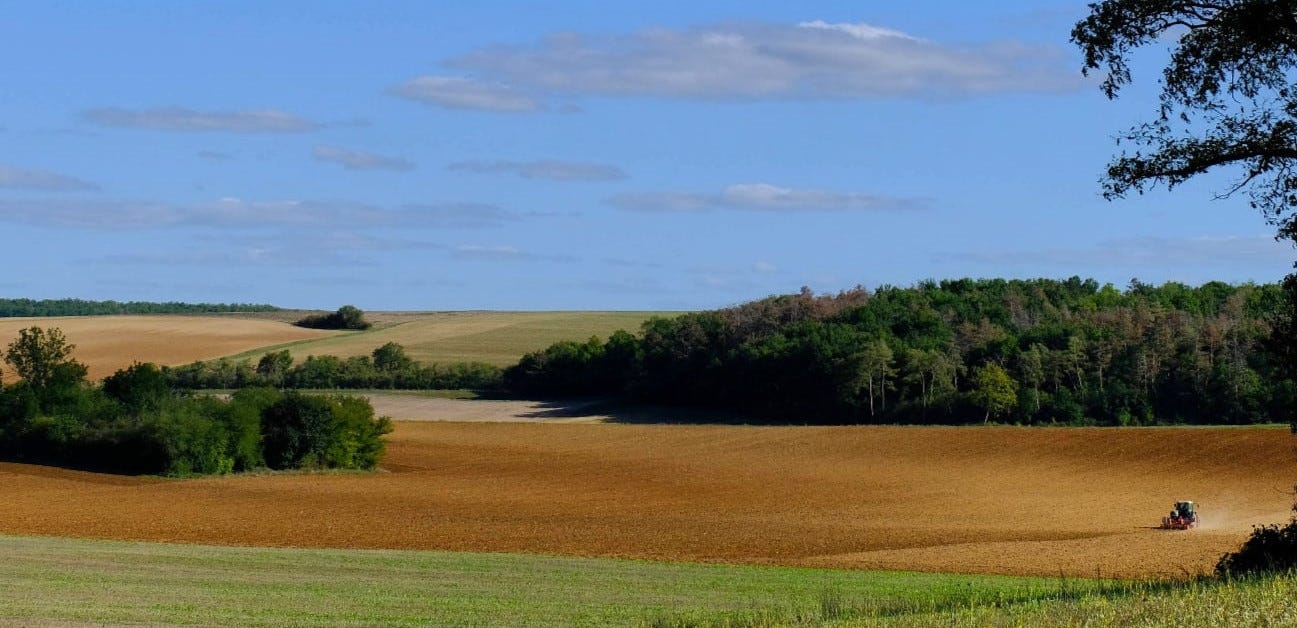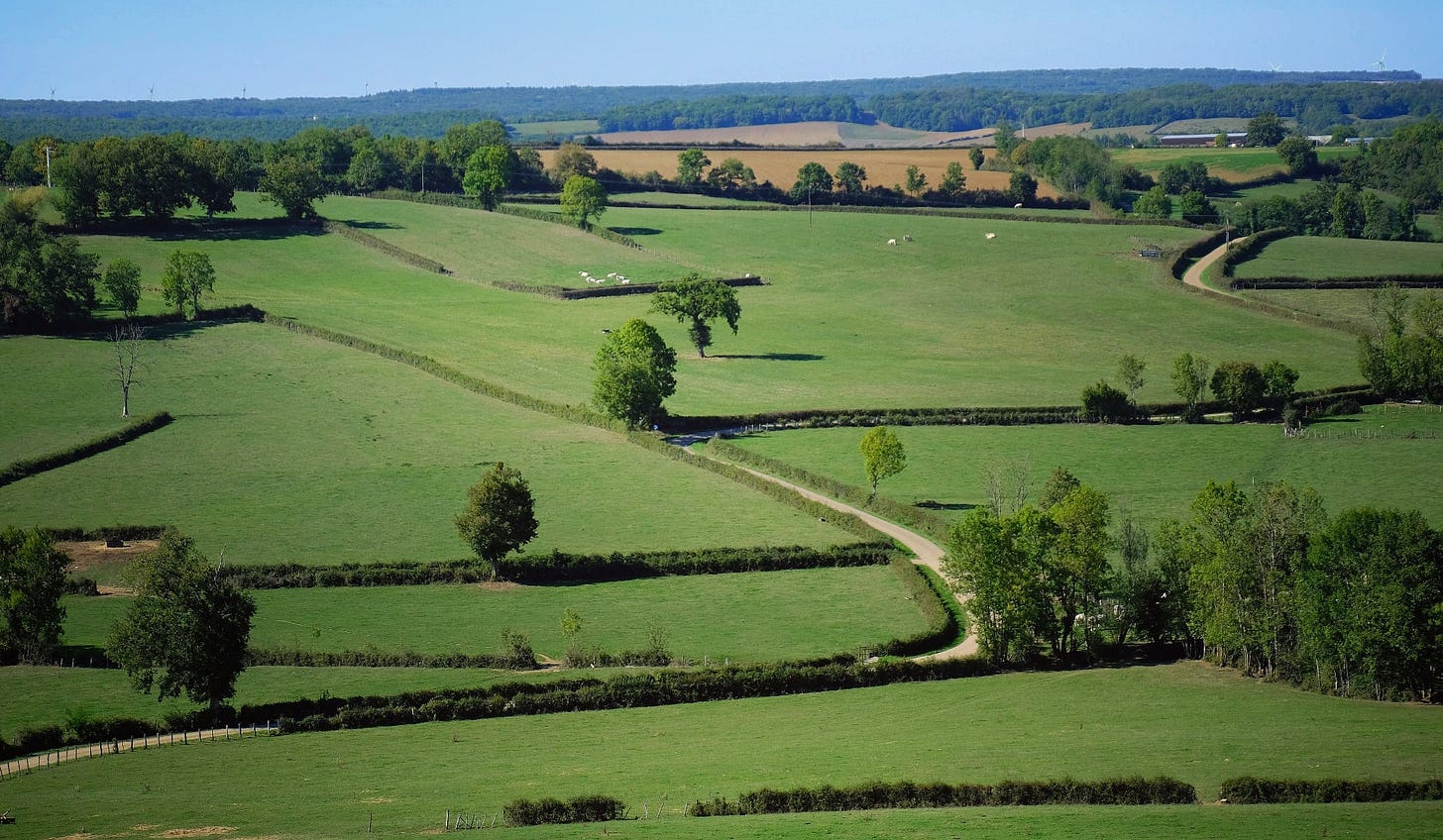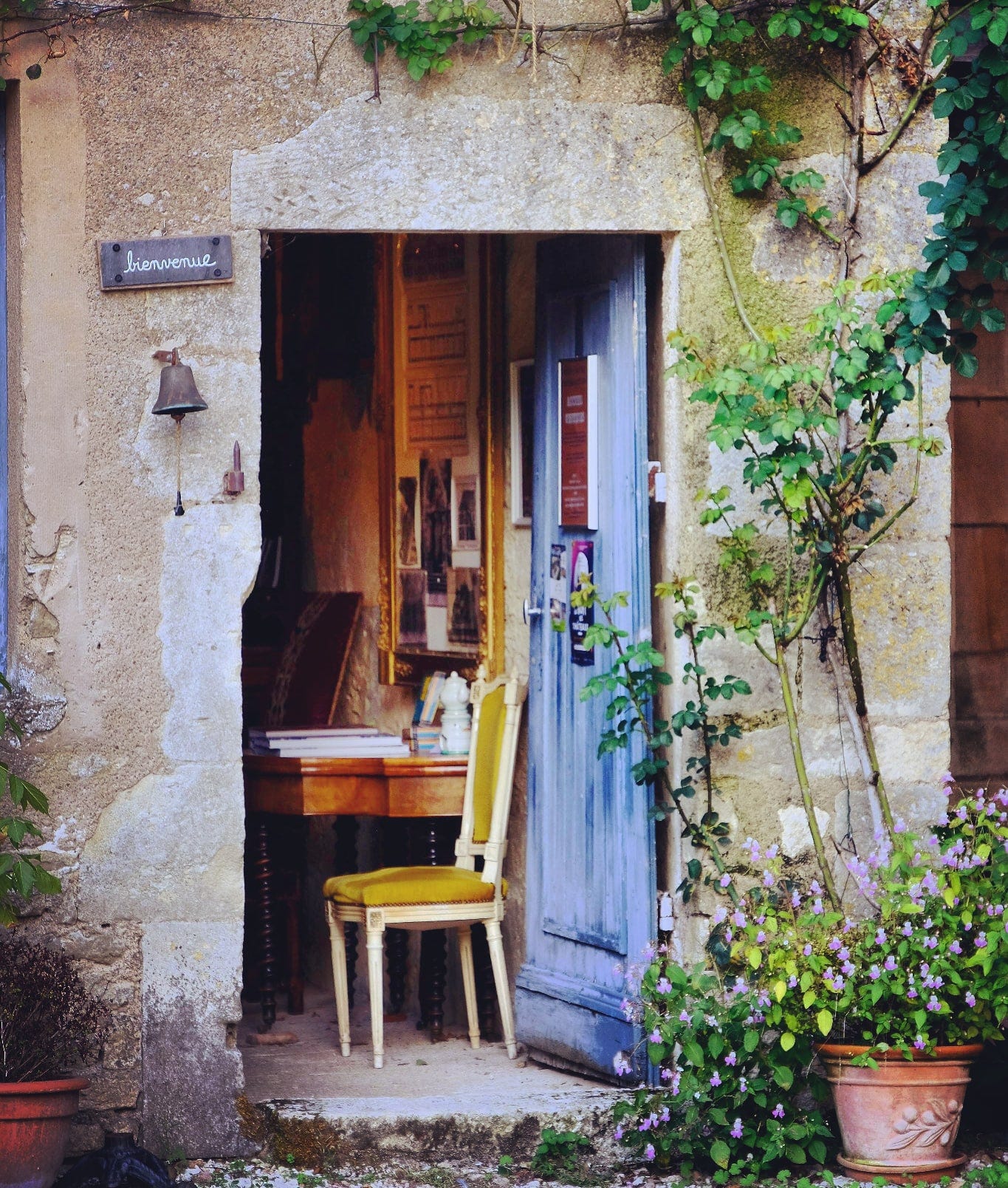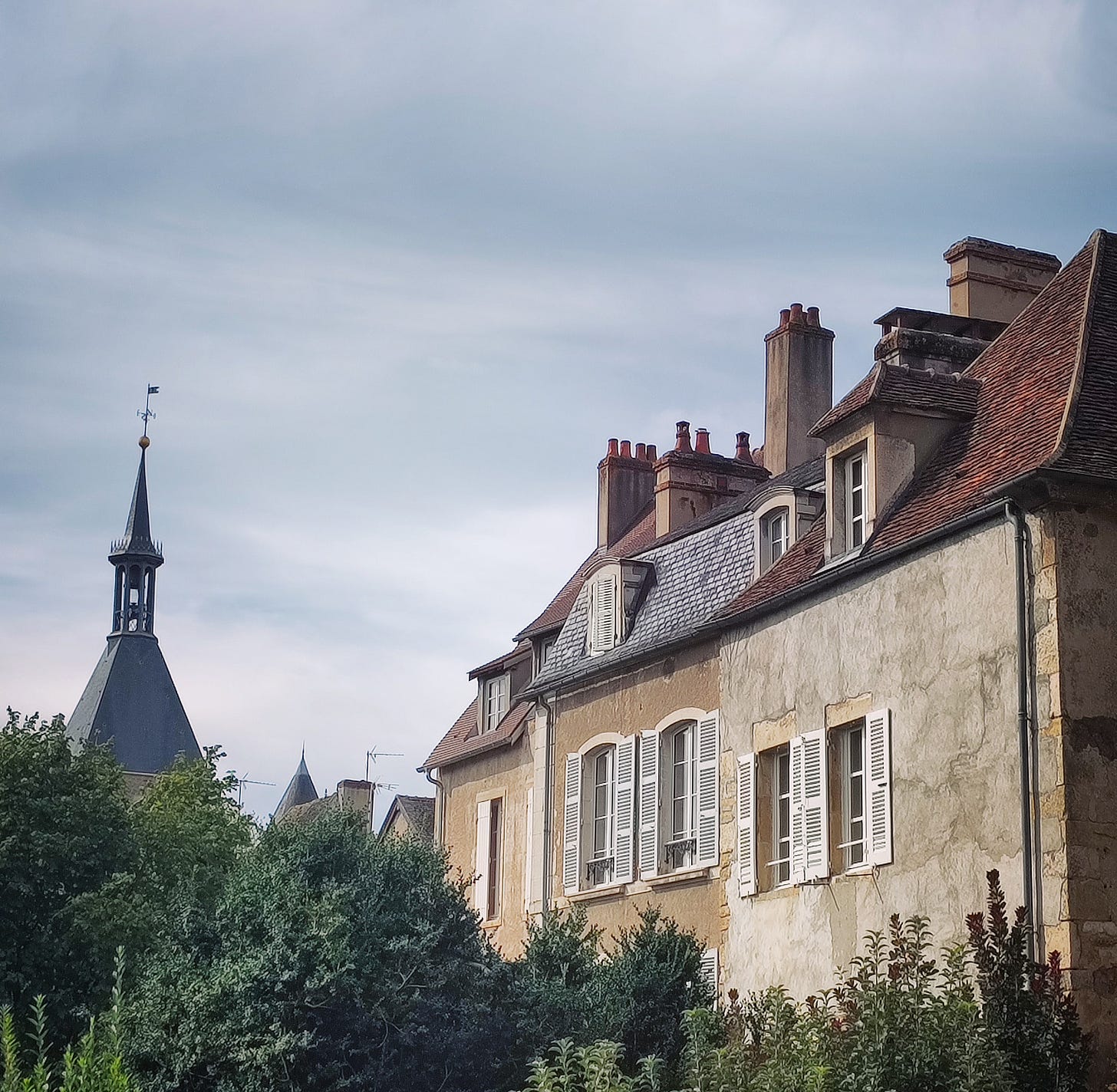Quiet Burgundy
Some notes from a short visit to a region of France with many attractions but also a lingering sense of economic malaise
Last week I was in France, visiting friends in the department of Burgundy. It’s my third visit to the area, and among its many charms is the beautiful rolling countryside and many ancient towns and villages. I stayed in Noyers-sur-Serein, a very pretty village with many ancient timber-framed buildings. During my stay we visited Avallon and Auxerre, two bustling provincial cities, and the magnificent Abbaye de Fontenay near Montbard. But, as before, I was struck by the number of smaller towns, such as Tonnerre, where time seems to have stood still — and not in a good way. Cobweb-laden shop windows of businesses long departed, empty and abandoned schools, streets that look untouched for decades,. You could shoot a 1970s-era Jean Paul Belmondo film simply by parking a few vintage Citroëns and Deux Chaveaux at the curb, nothing more required.
Every community, large or small, needs some form of economic sustenance, and the vitality of so many of these towns and large villages seems to have been seeping away for a very long time. In a ever-changing world, there is the natural ebb and flow of activity, especially of a commercial nature. But one has to ask: What happened? France (as did other Western liberal democracies) enjoyed what they call the Trente glorieuses, three decades of tremendous prosperity stretching from the end of WWII to the mid 1970s. This was a period of previously unparalleled sustained economic growth, thanks to a strong dirigiste central state steering the economy and a vibrant private sector.
That all changed in the 1980s, as the Reagan/Thatcher counter-revolution gained traction and initiated the neoliberal era, in which our governments turned over control of vast swathes of economy to the private sector, even going so far as in the case of the EU as member-states renouncing monetary sovereignty in favor of an ill-designed currency union led by a wholly unaccountable central bank. Our countries once had long-term economic planning in the form of “industrial policy”, a quaint concept now wholly out of fashion in the West. How often do you hear European or American politicians discussing industrial policy? Never. It has the cachet these days of Soviet-style bureaucratic central planning.
Seeing Tonnerre and similar such towns mired in economic decay, one doesn’t see the abstract forces of nature at work, one sees the results of a series of decisions taken over a long period of time in the realm of political economy.
Here in the Netherlands, I’ve seen the mindset of neoliberal regional planners (Zef Hemel is one such figure): there's more growth in cosmopolitan regions oriented towards the post-industrial “knowledge economy”, therefore we should invest more heavily in there. But what about the other regions? Well, our exalted mandarins don’t have a column in their Excel spreadsheets for solidarity and social cohesion; such things can’t be quantified, so they simply don’t count. Such regions are hence expendable. During the social democratic era, economic decentralization was a deliberate policy, it was considered a key political objective. In the neoliberal era, this kind of thinking has been largely if not wholly abandoned, and leaving things up to the “free market” inevitably result in economic concentration, both vertically (growing inequality) as well as horizontally (geographically).
But what about the people in these regions? How do they feel about being deemed expendable? I’m sharing some anecdotal observations as a visitor, which, as always, have limited value. But there is plenty of more comprehensive evidence that all is not well. The Gilets Jaunes, the “yellow vests” protest movement, which began at the end of 2018, reflected profound disillusionment in France profonde with the status quo. That people vote for the status quo when they are satisfied and economically secure — and against it when they are not — is surely a truism that hardly bears repeating, yet time and time again we see the bien pensant liberal establishment insisting that the people behind a widespread and sustained protest movement like the Gilets Jaunes, who vote for a Brexit, a Trump, a Marine Le Pen, a right-wing populist partly like the AfD (Germany) or the FvD (here), or Giorgia Meloni and the Brothers (Italy) are doing so because they are under the influence of “bad ideas”. No, these are symptoms of a deep and growing economic malaise. But since our political culture has been purged any real understanding of the material conditions that underpin modern society, they don’t see any of this. A figure like Trump is nothing more than a demagogue and a charlatan in this light; Brexit voters were all just dumb and racist provincials.
Back in 2019, the New York Times, a paper which is at times still is capable of good reporting on US domestic issues, published a long article, “How the Rural-Urban Divide Became America's Political Fault Line”. It’s clear this fault line is pervasive in much of Europe now as well. The recent farmer's protests in the Netherlands have been a stark reflection of the profound town-country schism here.
As China watchers know, that country undertook over the past decade a concerted effort to eradicate extreme poverty, which was concentrated in remote rural areas. The CPC says the primary goal has been accomplished, but even so there remains much to be done. The 14th Five-Year Plan (2021-2025), includes a drive to to further revitalize and modernize rural areas. Many of people working age left to seek their fortunes in the big cities but not everyone has, and the party leadership clearly sees it in the interest of social cohesion to stimulate the economic viability of rural village life. In a country that places such importance on stability, they get it: a rising tide must lift all boats. We in the West once knew it, at least to a limited degree, but we’ve unlearned the lesson. As dark clouds gather on the horizon, as we head towards a growing economic crisis, there are likely to ever more uncomfortable reminders of this inconvenient truth.
More photos of Burgundy on my Instagram page.






Such a well written article!!
This is France as I remember it when I fell in love with it.............thank you for your sensitive protrait.